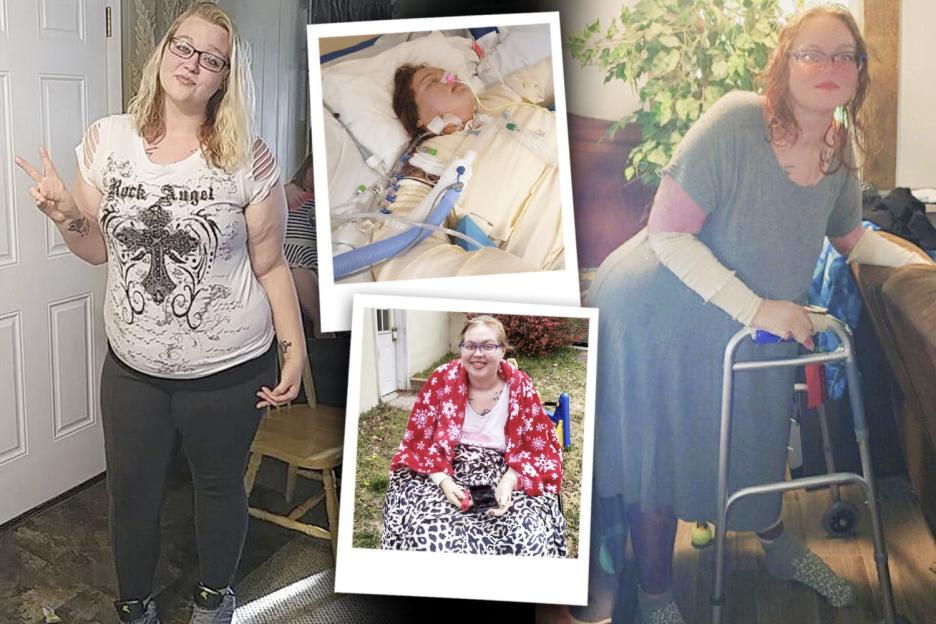A NEW digital Alzheimer’s test could make the “biggest difference” to diagnoses.
The test can be performed by patients on their own and could increase the accuracy of diagnosing people with the disease, say researchers.
 The new test is performed on a tablet computer, with results indicating if a patient needs to go on to have a blood test
The new test is performed on a tablet computer, with results indicating if a patient needs to go on to have a blood test
Scientists at Lund University in designed a digital cognitive test, known as BioCog, to be used in primary care as a first step in the investigation process for disease.
The digital test is done by a patient on a tablet computer, with minimal involvement from a healthcare professional.
And it involves the following:
- memory (memorising ten words)
- cognitive processing speed and attention (how quickly or slowly they process information)
- orientation (what year, day etc.)
- delayed recall (recalling previously memorised information)
- recognition (among 30 words, recognise the 10 words previously memorised)
The test measures aspects and variables that couldn’t easily be measured in the past using pen-and-paper tests, such as how long it takes the patient to search among the words or how quickly they tap the screen.
The combination of the sub-tests produces a result that is highly likely to indicate whether or not the patient has a cognitive impairment, and can help doctors to decide whether they require blood tests – and who may benefit from new drug treatments for Alzheimer’s disease.
Alzheimer’s disease is the most common cause of .
As new treatments now become available, both early and accurate diagnosis is becoming increasingly important – particularly as not everyone responds to the new .
“Primary care does not have the resources, time or specialist knowledge to investigate possible Alzheimer’s disease in the same way as specialised memory clinics. And this is where a digital cognitive test can make the biggest difference,” said Oskar Hansson, professor of neurology at Lund University.
Pontus Tideman, doctoral student in the research group, Clinical Memory Research at Lund University and psychologist at the Memory Clinic, Skåne University Hospital, added: “The vast majority of people who experience memory loss will first seek treatment at their health centre.
“Our new digital test provides a first objective picture – at an earlier stage and with greater precision – of which patients have cognitive impairment indicative of Alzheimer’s disease.
“This indicates who should proceed with the blood test that measures the level of phosphorylated tau and is able to detect Alzheimer’s pathology in the brain with high accuracy.”
The researchers also believe the digital tool could benefit patients because it’s currently very challenging to diagnose Alzheimer’s disease during a 15 to 20-minute patient encounter.
Linda Karlsson, MSc in engineering physics and doctoral student in the research group, Clinical Memory Research at Lund University, said: “The unique aspect of our BioCog test is that unlike other digital tests, it has been evaluated in a primary care population, i.e. patients seeking treatment at a health centre because they are experiencing cognitive problems, such as memory problems.
“Combining the results of the digital test and the blood test increases the accuracy of diagnosing Alzheimer’s disease.
“The purpose of the test is to make things easier for primary care doctors.”
Tests for Alzheimer’s are also important because symptoms of the disease progress slowly over several years and can be confused with other conditions.
And the rate at which symptoms progress is different for each individual.
But being aware of symptoms and spotting them early could help with getting diagnosed…
Early signs of Alzheimer's disease
In the early stages, the main symptom of Alzheimer’s disease is memory lapses.
For example, someone with early Alzheimer’s disease may:
- forget about recent conversations or events
- misplace items
- forget the names of places and objects
- have trouble thinking of the right word
- ask questions repetitively
- show poor judgement or find it harder to make decisions
- become less flexible and more hesitant to try new things
There are often signs of mood changes, such as increasing anxiety or agitation, or periods of confusion.
If you experience any of these symptoms, speak to your GP.
Source: NHS






